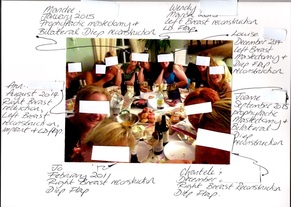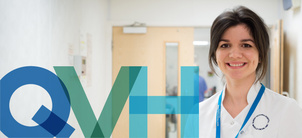UKNFR is the first national registry of its type in the world to collect data on all major pedicled and free flap operations. Data entry is voluntary, and it is acknowledged that unit data in this first report may not be a true representation of the case load of each participating unit.
An overview
• This is the first report of the UK National Flap Registry.
• The first patient record was added to UKNFR on 1 August 2015.
• Up to 8 August 2019, 5,751 operation records had been added to UKNFR, with over 180 registered consultant users actively adding data to the registry.
• Cases have been included from 97 private and NHS hospitals in England, Wales, Northern Ireland and Republic of Ireland. Surgeons in Scotland are awaiting permission from the Public Benefit and Privacy Panel (PBPP) for Health and Social Care.
• Participating speciality associations include the British Association of Plastic Reconstructive and Aesthetic Surgeons (BAPRAS), British Association of Oral and Maxillofacial Surgeons (BAOMS), British Association of Head and Neck Oncologists (BAHNO), Association of Breast Surgery (ABS) and British Society for Surgery of the Hand (BSSH).
Outcomes
Interpretation of the data has taken into account that some records may be incomplete and that not every case from each unit will have been included. The key outcomes were as follows:
• Overall total flap survival: breast 97.6%, head & neck 94.2%, limbs 94.5%, trunk and perineum 94.2%.
• Unplanned re-operation rate: breast 8.6%, head & neck 12.1%, limb 15.5%, trunk and perineum 12.0%.
• Average length of stay in days: breast 4.7days, head & neck 18.6, limb 12.9, trunk and perineum 11.5.
• Patency rates: Anastomotic patency of blood vessels is an objective measure of surgical outcome in free tissue transfer. More couplers were used in breast microsurgical reconstruction, constituting 81% of end-to-end vein anastomoses with over 98% patency rates.
• Outcomes were also analysed according to other groupings, such as specific risk factors or comorbidities: smoking, diabetes and an ASA score >3 were all associated with a significantly increased flap failure rate.
• The majority of flaps were from a single donor site to single recipient site (85.0% of operations)
• The most common donor flap in breast reconstruction was the deep inferior epigastric perforator flap (77.5%)
• The majority of breast reconstructions were delayed (49.0%) i.e., after completion of cancer treatment, compared to immediate (45.2%) i.e., mastectomy and reconstruction performed at the same time.
Breast-Q PROMs
After breast reconstruction, Patient Reported Outcome Measures (PROMS) were measured using the Breast-Q questionnaire at 6 months. Using a benchmark of a Breast-Q score of ≥70 (range 0-100) to define satisfaction, 72.5% of patients were satisfied with the breast reconstruction, 83.5% were satisfied with the outcome and 87.8% were satisfied with the information they were given. Though a further questionnaire was sent out at 18 months after reconstruction, the numbers of returned questionnaires were inadequate for this report and will be presented in future reports.
Surgeon dashboard
One of the big successes of the registry has been the surgeon dashboard. The registry displays the surgeon’s own data on a dashboard which allows easy visualisation of it in real time. This includes the number of procedures performed, case-mix, flap survival, unplanned return to theatre and length of hospital stay. The dashboard is very useful during appraisal and revalidation as it produces evidence of the surgeon’s performance in the form of a real time audit.








 RSS Feed
RSS Feed





